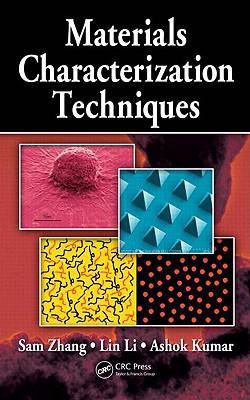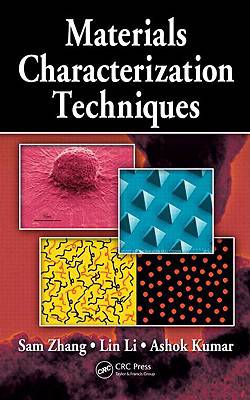
- Afhalen na 1 uur in een winkel met voorraad
- In januari gratis thuislevering in België
- Ruim aanbod met 7 miljoen producten
- Afhalen na 1 uur in een winkel met voorraad
- In januari gratis thuislevering in België
- Ruim aanbod met 7 miljoen producten
Omschrijving
Experts must be able to analyze and distinguish all materials, or combinations of materials, in use today--whether they be metals, ceramics, polymers, semiconductors, or composites. To understand a material's structure, how that structure determines its properties, and how that material will subsequently work in technological applications, researchers apply basic principles of chemistry, physics, and biology to address its scientific fundamentals, as well as how it is processed and engineered for use.
Emphasizing practical applications and real-world case studies, Materials Characterization Techniques presents the principles of widely used, advanced surface and structural characterization techniques for quality assurance, contamination control, and process improvement.
This useful volume:
- Explores scientific processes to characterize materials using modern technologies
- Provides analysis of materials' performance under specific use conditions
- Focuses on the interrelationships and interdependence between processing, structure, properties, and performance
- Details the sophisticated instruments involved in an interdisciplinary approach to understanding the wide range of mutually interacting processes, mechanisms, and materials
- Covers electron, X-ray-photoelectron, and UV spectroscopy; scanning-electron, atomic-force, transmission-electron, and laser-confocal-scanning-florescent microscopy, and gel electrophoresis chromatography
- Presents the fundamentals of vacuum, as well as X-ray diffraction principles
Explaining appropriate uses and related technical requirements for characterization techniques, the authors omit lengthy and often intimidating derivations and formulations. Instead, they emphasize useful basic principles and applications of modern technologies used to characterize engineering materials, helping readers grasp micro- and nanoscale properties. This text will serve as a valuable guide for scientists and engineers involved in characterization and also as a powerful introduction to the field for advanced undergraduate and graduate students.
Specificaties
Betrokkenen
- Auteur(s):
- Uitgeverij:
Inhoud
- Aantal bladzijden:
- 342
- Taal:
- Engels
Eigenschappen
- Productcode (EAN):
- 9781420042948
- Verschijningsdatum:
- 1/12/2008
- Uitvoering:
- Hardcover
- Formaat:
- Genaaid
- Afmetingen:
- 157 mm x 236 mm
- Gewicht:
- 612 g

Alleen bij Standaard Boekhandel
Beoordelingen
We publiceren alleen reviews die voldoen aan de voorwaarden voor reviews. Bekijk onze voorwaarden voor reviews.









